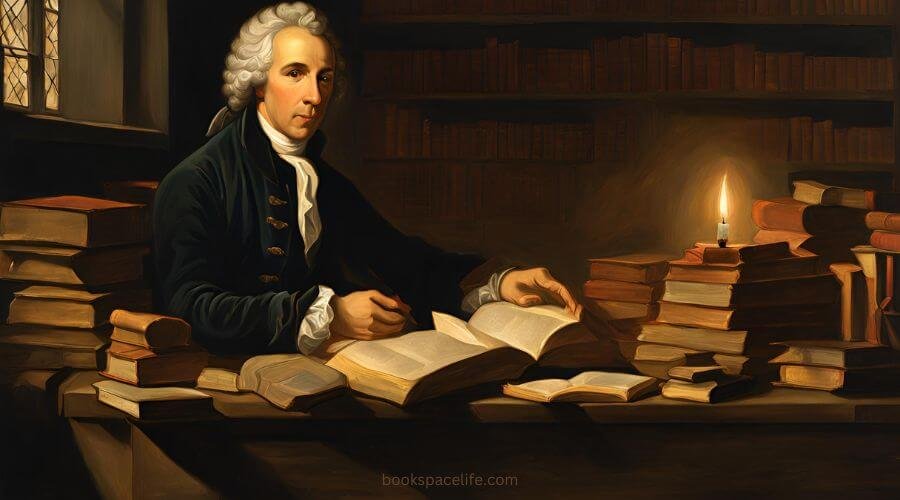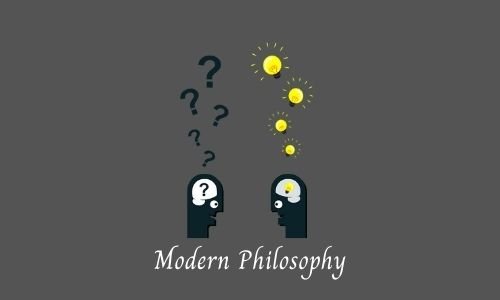Philo of Alexandria
Jonathan Edwards: The Theological and Philosophical Visionary of the Great Awakening
Jonathan Edwards (1703 – 1758 CE) was an American preacher, theologian, philosopher, and missionary who played a pivotal role in the religious revival movements of the 18th century.
Widely considered one of the most influential figures in the development of Christian theology in America, Edwards is best known for his fiery sermons, such as the infamous Sinners in the Hands of an Angry God, and his intellectual contributions to the philosophy of religion.
His unique blend of deep theological insight, intellectual rigor, and spiritual fervor set him apart as a visionary who sought to reconcile reason and faith.
Edwards’ philosophical and theological ideas had a profound impact on both American religious life and broader philosophical discussions in the years following the Great Awakening.
His works laid the foundation for a distinctively American theology that would influence generations of Protestant thinkers and contributed to the emergence of modern evangelicalism.
Though his influence waned in certain circles during his lifetime, his writings have continued to resonate in both Christian theology and the broader landscape of philosophy.
Table of Contents
(1) Early Life and Education
Jonathan Edwards was born on October 5, 1703, in East Windsor, Connecticut, into a family deeply involved in ministry and academia.
His father, Timothy Edwards, was a minister, and his grandfather, Solomon Stoddard, was a prominent pastor in the region, serving as the pastor of the church in Northampton, Massachusetts.
From an early age, Edwards was surrounded by an environment of theological inquiry, discipline, and piety.
Edwards exhibited exceptional intellectual abilities from a young age. At the age of 12, he entered Yale College, where he pursued a rigorous course of study in philosophy, theology, and the natural sciences.
During his time at Yale, Edwards developed a keen interest in the works of leading European philosophers, including John Locke and René Descartes, whose ideas would deeply influence his philosophical thought.
Edwards was particularly drawn to Locke’s empiricism, and his early writings demonstrate a philosophical commitment to reason and natural observation as ways of understanding the world.
However, Edwards also maintained a profound commitment to the authority of Scripture and the theological traditions of Calvinism, which would become central to his later work.
Edwards graduated from Yale in 1720, and after several years of preaching in various communities, he accepted the position of assistant pastor at his grandfather’s church in Northampton, Massachusetts, in 1726.
This was a formative period in his life and marked the beginning of his significant theological contributions.
(2) The Great Awakening and Edwards’ Theological Development
The 1730s and 1740s were a time of religious upheaval and revival in the American colonies, and Jonathan Edwards emerged as one of the central figures of the First Great Awakening, a period of intense religious revivalism that swept through New England and beyond.
The revivalist movement, which emphasized personal piety, emotional experiences of the Holy Spirit, and the necessity of individual conversion, transformed the landscape of American Protestantism.
Edwards, who had initially been skeptical of the emotional excesses associated with the revival movement, became an ardent supporter of the Great Awakening after witnessing the profound spiritual transformations in his own congregation.
Edwards’ theological response to the revival was both intellectual and deeply spiritual.
He sought to articulate a vision of the Christian life that balanced the need for a personal relationship with God with an emphasis on rational understanding of divine truths.
Edwards’ most famous sermon, Sinners in the Hands of an Angry God (1741), delivered during the height of the Great Awakening, became emblematic of his approach to evangelism.
The sermon vividly described the perilous state of unrepentant sinners and the imminent threat of divine wrath, but it also conveyed the possibility of redemption through Christ.
The sermon’s stark imagery and urgent tone reflected Edwards’ belief in the absolute sovereignty of God and the dire need for sinners to recognize their dependence on God’s grace.
Beyond his emotional sermons, Edwards wrote extensively on matters of doctrine, ethics, and theology, seeking to refine and explain his views on the nature of God, salvation, and the human condition.
His work on these subjects would go on to define his legacy and place him among the most significant American theologians and philosophers.
(3) Key Philosophical and Theological Ideas
Edwards’ theological views were firmly rooted in Reformed theology, particularly in the traditions of John Calvin.
He believed in the total depravity of humanity, the necessity of divine grace for salvation, and the unmerited nature of God’s love.
However, his intellectual contributions extended far beyond doctrinal matters.
Edwards’ philosophical insights into the nature of God, human experience, and metaphysics continue to be studied for their depth and originality.
One of Edwards’ most important philosophical contributions was his theory of voluntarism, which asserts that God’s will is the ultimate basis for all reality.
Edwards held that everything in the universe exists because of God’s will, and that God’s will is not bound by any necessity or external constraints.
This view was a departure from certain forms of natural theology, which sought to explain God’s existence and attributes through human reason alone.
For Edwards, God’s will was primary, and everything, including the natural world and human actions, derived its meaning and existence from God’s sovereign will.
Another significant aspect of Edwards’ philosophy was his exploration of the nature of beauty and its relationship to the divine.
In his work The Nature of True Virtue (1765), Edwards argued that true beauty is found in the harmonious order and unity of God’s creation.
He contended that human beings are able to appreciate beauty because of their capacity to perceive God’s beauty in the natural world.
This view helped to bridge Edwards’ theological ideas with his philosophical thinking, suggesting that aesthetic experiences were closely tied to spiritual experiences of God’s presence.
Edwards’ notion of affections, which referred to the emotions and desires that guide human action, also played a central role in his thinking.
He argued that true religious experience is marked by the affections, particularly by the love of God.
For Edwards, authentic Christianity was not just about intellectual assent to theological propositions but about a transformative experience of God’s grace that moved the heart and soul of the believer.
Edwards’ work on the affections influenced later theological discussions on the nature of religious experience and the role of emotion in faith.
(4) Influence and Impact
Jonathan Edwards’ influence extended far beyond his own time, and his legacy as both a theologian and philosopher has only grown with the passage of time.
His writings, while controversial in his own era, helped shape the development of both American evangelicalism and the broader Christian philosophical tradition.
In the context of the First Great Awakening, Edwards played a crucial role in giving theological legitimacy to the revival movement, helping to shape its doctrinal foundations.
His sermons and writings provided the intellectual framework for the revival, emphasizing the need for personal conversion, emotional engagement with faith, and the recognition of the absolute sovereignty of God. His vision of revival was not merely emotional but deeply intellectual, seeking to inspire both the heart and the mind.
Edwards’ impact on American Christianity was profound, as his work helped lay the groundwork for the rise of evangelicalism in the United States.
His emphasis on the necessity of personal religious experience, individual conversion, and the transformative power of God’s grace resonated deeply with later evangelical movements, including the Methodist revival and the Great Awakenings of the 19th and 20th centuries.
In the realm of philosophy, Edwards’ ideas contributed to the development of American philosophy, particularly in the areas of metaphysics, epistemology, and ethics.
His emphasis on God’s sovereignty, the relationship between the mind and the divine, and the nature of human experience provided a foundation for later philosophers such as Immanuel Kant, who wrestled with similar issues of God, reality, and human experience.
Edwards also influenced the development of the New England School of Theology, which shaped theological education and pastoral practice in the United States for generations.
His commitment to intellectual rigor in matters of faith ensured that theological scholarship remained deeply connected to philosophical inquiry and spiritual devotion.
(5) Legacy
Jonathan Edwards passed away on March 22, 1758, at the age of 54. Despite facing opposition during his life, particularly due to his involvement in the Great Awakening and his rigorous theological views, Edwards’ legacy has only grown in stature.
His writings, sermons, and philosophical works have had a lasting impact on Christian theology, American religious life, and philosophy.
As a theologian, Edwards helped define the contours of evangelical thought in America; as a philosopher, he made important contributions to metaphysics, epistemology, and the philosophy of religion.
Today, Edwards is celebrated not only as a preacher of the Great Awakening but also as a profound thinker whose works continue to inspire scholars in the fields of theology, philosophy, and the history of ideas.
His intellectual rigor, spiritual depth, and unwavering commitment to the sovereignty of God make Jonathan Edwards one of the most important figures in the history of Christian thought.
(6) Conclusion
Jonathan Edwards remains a towering figure in both Christian philosophy and the history of American religion.
His contributions to the development of evangelical thought, his intellectual exploration of the nature of God and humanity, and his passionate defense of the Great Awakening have ensured his place in history as a theologian, philosopher, and preacher whose legacy continues to shape religious and philosophical thought today.








